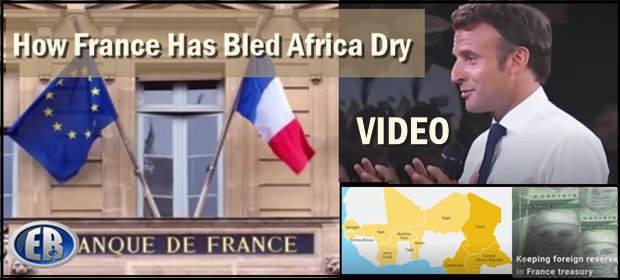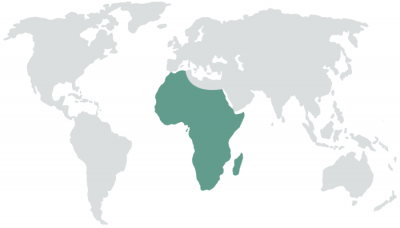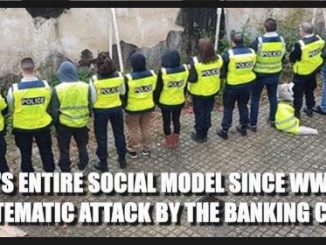
France Exposed – Exploitation of West and Central Africa Continues Way Beyond Colonial Times
PETER KOENIG

All Global Research articles can be read in 51 languages by activating the Translate Website button below the author’s name.
To receive Global Research’s Daily Newsletter (selected articles), click here.
Follow us on Instagram and Twitter and subscribe to our Telegram Channel. Feel free to repost and share widely Global Research articles.
***
What Italian President Georgia Meloni has to say in a powerful brief statement about France’s continued abuse of the 14 West and Central African former French colonies, is the truth and nothing but the truth – see this 1-minute video.
— Catturd ™ (@catturd2) November 19, 2022
But it falls far short of the full extent of French post-colonial exploitation.
The so-called Central Banks of the West African Francophone former colonies – Mauritania, Senegal, Mali (formerly French Sudan), Guinea (formerly French Guinea), Ivory Coast, Burkina Faso (formerly Upper Volta) , Benin (formerly Dahomey) and Niger – and of the former Central African colonies – Central African Republic – CAR (former Oubangui-Chari); Chad; Gabon; and the Republic of Congo (former Middle Congo) – are just shadow institutions.
Their real Central Bank is the Bank of France, respectively the French Treasury. Up to this date, the French Central Bank, imposes on these former colonies a way over-valued currency. The Franc CFA – Communauté Financière d’Afrique (“Financial Community of Africa”), is “guaranteed” (a better term would be “hijacked”) up to 50% by the French Treasury – which means, the West and Central African Central Banks have to deposit 50% of their reserves with the French Treasury, plus another 20% for “financial liabilities”.
The GDP of France (2022 est.) is 2.82 trillion US$ equivalent; that of the 14 CFA countries is about 282 billion US$ equivalent, about a tenth of that of France. The CFA-zone reserves must consequently be of tens of billions of dollars equivalent; a nice nest egg for the French Treasury.
The Harvard International Review (HIR) of 18 March 2022 has this to say:
“One of the founding principles of the system was that colonies had to keep 50 percent of their foreign currency reserves in the French Treasury, plus an additional 20 percent for financial liabilities. Thus, member states only retained 30 percent of reserves within their borders. The long-term direct economic trade-offs of the CFA monetary zone have included both diminished per capita growth and mitigated progress in fighting poverty.”
See this.
The respective West and Central African Central Banks may only withdraw some of their deposited reserves with the permission of the French Treasury. In turn, the French Treasury may use these foreign funds freely, the same way a private commercial bank may use their clients’ deposits for their own collateral or investment purposes.
You may wonder about the fate of the French economy without these basically stolen reserve resources.
This France-imposed currency system has, since the colonies’ “independence” in the late 1950s / early 1960s, been criticized since it makes economic planning for the 14 francophone “former” French colonies almost impossible, plus, the CFA franc is largely overvalued, making their countries’ trade dependent (import and export) on the good-will of France.
Despite repeated pressure of ECOWAS (Economic Community of West African States) and leaders of West and Central African countries themselves, currency exchange adjustments have only taken place with the permission of France.
Today the CFA’s value is pegged to the Euro, currently fluctuating at about FCFA 655 = one Euro. The CFA’s monetary policy is officially set by the European Central Bank (ECB), of course, heavily, if not exclusively, influenced by the Banque de France.
You may also want to watch this video (6 minutes) on how France is currently forcing 14 African countries to pay for being colonized.
ER: WE HIGHLY RECOMMEND WATCHING THIS
France deprives their former colonies completely of their political, financial and economic sovereignty.
France further benefits from the franc CFA, in as much as the overvalued currency stimulates large capital outflows from the 14 former colonies, mostly towards Europe, primarily France. Thereby syphoning further resources from the poverty-stricken francophone countries, resources which would be bitterly needed for West and Central African internal development – infrastructure, education, manufacturing, processing of locally produced resources for local and export markets – and more.
In other words, France does everything to keep their former colonies down and as under-developed and poor, thus dependent, as possible. Eleven out of the 14 CFA-states are deemed “least developed” by the United Nations, and Sub-Saharan member countries fall at the bottom of the UN Human Development Index.
Since 2019, at the initiation of President Patrice Talon of Benin, ECOWAS has attempted to liberate West Africa from the fangs of France and other western powers, by introducing an independent currency, “Eco”, and transferring the reserve deposits from the French Treasury to the West African Central Bank in Senegal.
“We all agree on this, unanimously, to end this model,” Benin’s President Patrice Talon told French media on 15 November 2019, referring to the French-controlled CFA-model.
President Macron has simply ignored Patrice Talon’s announcement – and nothing has happened so far, not the transfer of West African reserves out of the French Treasury, nor the creation of an independent ECOWAS currency.
While a common currency for countries that are not politically or economically aligned is usually not a good idea – see the Euro fiasco for 27 politically independent countries – it is highly desirable that West and Central Africa’s former French colonies become truly independent and politically and financially, as well as economically sovereign nations.
************
Source
Peter Koenig is a geopolitical analyst and a former Senior Economist at the World Bank and the World Health Organization (WHO), where he worked for over 30 years around the world. He lectures at universities in the US, Europe and South America. He writes regularly for online journals and is the author of Implosion – An Economic Thriller about War, Environmental Destruction and Corporate Greed; and co-author of Cynthia McKinney’s book “When China Sneezes: From the Coronavirus Lockdown to the Global Politico-Economic Crisis” (Clarity Press – November 1, 2020)
Peter is a Research Associate of the Centre for Research on Globalization (CRG). He is also is a non-resident Senior Fellow of the Chongyang Institute of Renmin University, Beijing.

••••
The Liberty Beacon Project is now expanding at a near exponential rate, and for this we are grateful and excited! But we must also be practical. For 7 years we have not asked for any donations, and have built this project with our own funds as we grew. We are now experiencing ever increasing growing pains due to the large number of websites and projects we represent. So we have just installed donation buttons on our websites and ask that you consider this when you visit them. Nothing is too small. We thank you for all your support and your considerations … (TLB)
••••
Comment Policy: As a privately owned web site, we reserve the right to remove comments that contain spam, advertising, vulgarity, threats of violence, racism, or personal/abusive attacks on other users. This also applies to trolling, the use of more than one alias, or just intentional mischief. Enforcement of this policy is at the discretion of this websites administrators. Repeat offenders may be blocked or permanently banned without prior warning.
••••
Disclaimer: TLB websites contain copyrighted material the use of which has not always been specifically authorized by the copyright owner. We are making such material available to our readers under the provisions of “fair use” in an effort to advance a better understanding of political, health, economic and social issues. The material on this site is distributed without profit to those who have expressed a prior interest in receiving it for research and educational purposes. If you wish to use copyrighted material for purposes other than “fair use” you must request permission from the copyright owner.
••••
Disclaimer: The information and opinions shared are for informational purposes only including, but not limited to, text, graphics, images and other material are not intended as medical advice or instruction. Nothing mentioned is intended to be a substitute for professional medical advice, diagnosis or treatment.





Leave a Reply